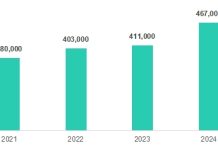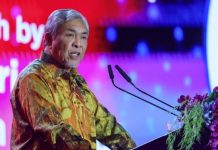China has formally adopted a controversial security law, giving it new powers over Hong Kong. It is set to criminalise secession, subversion and collusion with foreign forces, but will also effectively curtail protests and freedom of speech. China’s state news agency, Xinhua, confirmed that President Xi Jinping had signed the security law. It has been added to Hong Kong’s Basic Law, the 50-year mini-constitution agreed when the territory’s sovereignty was returned to China by the UK in 1997. Its terms are not yet clear, meaning residents still do not know the measures they will have to abide by. The law could be implemented as early as Wednesday. The law has sparked demonstrations in Hong Kong since it was announced by Beijing in May. China says it is needed to tackle unrest and instability and rejects criticism as interference in its affairs.
In Washington, Reuters reported that the United States has begun eliminating Hong Kong’s special status under U.S. law, halting defense exports and restricting the territory’s access to high technology products The Commerce Department said it was suspending “preferential treatment to Hong Kong over China, including the availability of export license exceptions,” adding that further actions to eliminate Hong Kong’s privileged status were being evaluated.
U.S. Secretary of State Mike Pompeo said, “The Chinese Communist Party’s decision to eviscerate Hong Kong’s freedoms has forced the Trump administration to re-evaluate its policies toward the territory.” “The United States is forced to take this action to protect U.S. national security. We can no longer distinguish between the export of controlled items to Hong Kong or to mainland China,” Pompeo said.
Beijing responded by saying it would impose visa restrictions on U.S. individuals with “egregious conduct” on Hong Kong-related issues. Analysts say completely ending Hong Kong’s special treatment could prove self-defeating for the United States, which has benefited from the territory’s business-friendly conditions. According to the State Department, 85,000 U.S. citizens lived in Hong Kong in 2018 and more than 1,300 U.S. companies operate there, including nearly every major U.S. financial firm.














